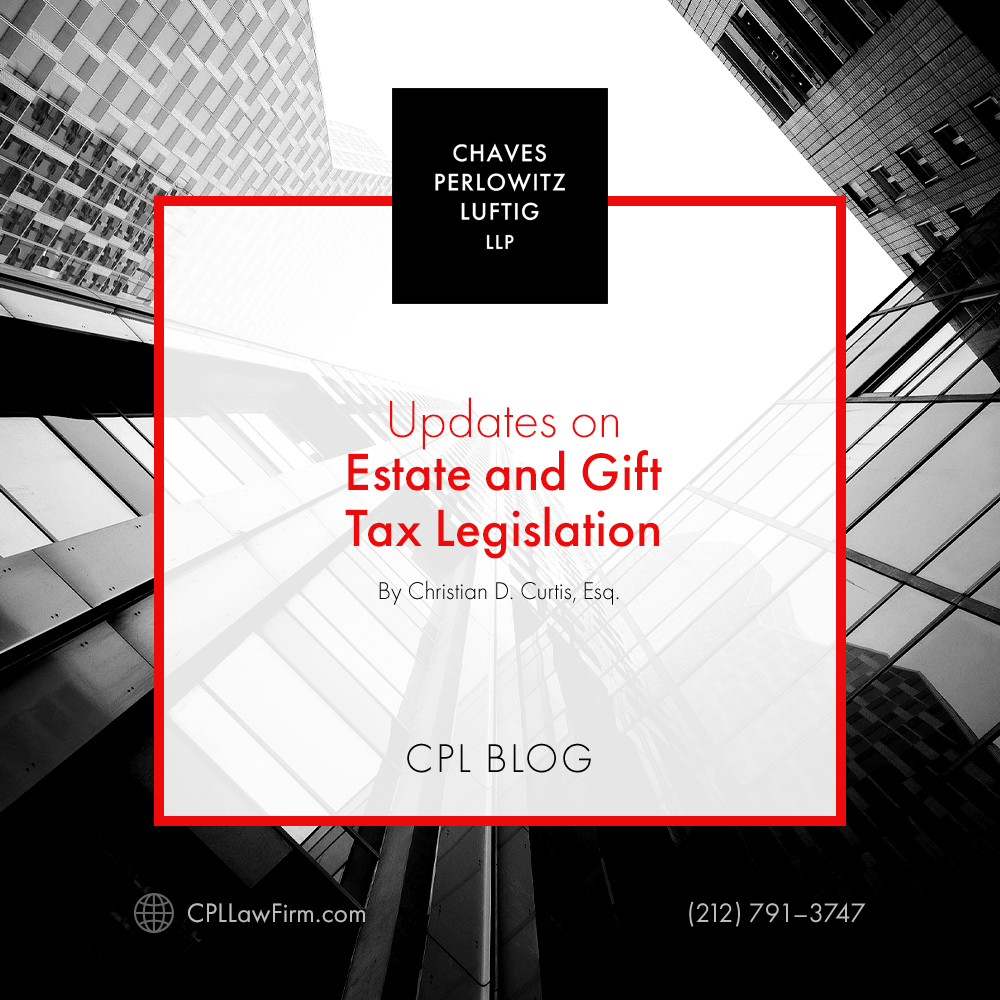By Christian D. Curtis
Back in June 2021, after fielding many calls from concerned clients, I hosted a Webinar regarding President Biden’s bold tax change proposals.
These proposals would have made some profound changes in the taxation of trusts and estates, uprooting some century-old tax rules and creating potential phantom tax liabilities at death. Specifically, these were:
- Elimination of the “Step-Up in Basis”: The “step-up” in basis is a tax rule that eliminates any built-in appreciation in assets at the death of the owner. Biden and others in Congress argued that the rule was a tax break for the wealthy and sought to do away with it. This meant that an estate’s beneficiaries would also inherit the decedent’s basis in the inherited property. Upon sale of this property, the beneficiaries could face a potentially large income tax bill.
- Increase in the Capital Gains Rate: President Biden further proposed to increase the Capital Gains tax rate from the current maximum of 23.8% to 43.4% for households with income in excess of $1mm (this includes the 3.8% “Net Investment Income Tax”)
- Realization of Capital Gains Upon Death of Settlor: Potentially more troublesome for beneficiaries and executors of an estate would have been Biden’s proposal to not only eliminate the “Step-Up in Basis” as mentioned above but in the case of certain high-value estates there would be a deemed sale of assets. This proposal would essentially force the estate to pay income tax on the built-in appreciation, essentially a tax on “phantom income.” Such a change would force many estates to liquidate and sell assets to cover the tax owed, potentially in a “fire sale” to ensure any tax bill is timely paid.
These proposals constituted a centerpiece of President Biden’s agenda 6 months ago. Some versions of the abovementioned proposals were considered in the Build Back Better Act debated and negotiated in Congress.
So where are we now, and what’s passed?
Well, basically…. nothing has passed or changed.
Following opposition from the entire Republican Senate caucus and several key Democratic senators, the abovementioned provisions were gradually stripped from the proposed bills circulating through Congress. By late November, Democrats appeared to have lost momentum in passing these proposals, instead of focusing on a reduction of the estate tax exemption and an increase in the level of SALT Deductions.
So, what happens next?
Components of the Build Better Act are still being negotiated. While there’s a possibility that the abovementioned proposals could be reinstated, it’s unlikely. So as things stand:
- The “Step-Up” in Basis remains;
- There will be no deemed sale of assets at death;
- The current US estate tax exemption for 2022 is $12,060,000.00, and will continue to be adjusted for inflation every year (this amount will sunset on January 1, 2026, and revert to approximately $6mm, unless sooner decreased by Congress and the President);
- The New York State Estate Tax Exemption for 2022 is set at $6,110,000.00; and;
- The annual US gift tax exemption has been increased to $16,000.00 per done (spouses can combine this exemption and gift up to $32,000.00 per done without having to file a gift tax return, owe gift tax or take it from their lifetime credit).
What Should I do?
For High-Net-Worth individuals with over $12mm in assets (or up to $24mm for spouses), gifting strategies should be considered sooner than later before the higher exemption sunsets on January 1, 2026. The IRS has confirmed that any gifts made prior to the sunset date will not be clawed back, which provides a valuable window of opportunity to minimize estate assets to reduce or eliminate an estate tax liability.
New York residents take note: New York State has its own estate tax with a lower exemption than the federal exemption. As such, some estates may see no federal estate tax bill, but a potentially large New York estate tax bill. There are planning strategies to mitigate or eliminate this tax risk, but planning should be considered sooner than later.
For further information, feel free to contact the Trust and Estate team, here!

Chaves Perlowitz Luftig LLP is one of the most highly regarded real estate and estate planning firms in New York City. Our team of top-rated real estate attorneys and estate planning lawyers have extensive knowledge, resources, and connections to help you achieve your goals and plan for the future.

